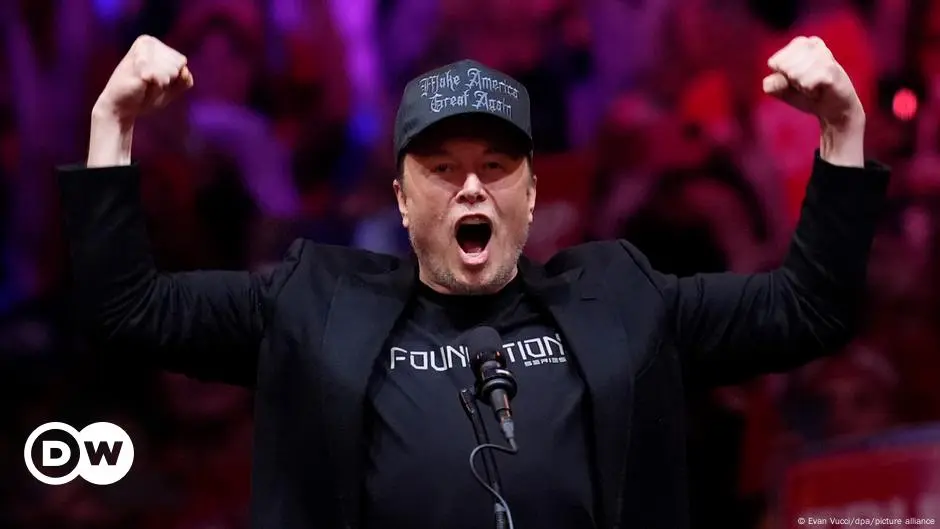- cross-posted to:
- [email protected]
- cross-posted to:
- [email protected]
Summary
Elon Musk expressed support for Germany’s far-right Alternative for Germany (AfD) party on X, stating “Only the AfD can save Germany.”
Party leader Alice Weidel welcomed his endorsement, urging followers to review her criticisms of German politics.
The AfD, polling at 19% ahead of February’s federal election, is officially under scrutiny as an extremist group by German authorities.
Musk has previously questioned the party’s “far-right” label. Controversy surrounds the AfD, including links to a meeting discussing deportation of migrants.



Fortunately, AfD is not in the government and possibly never will be
They have been getting traction consistently and German politics moved significantly to the right over the past years. Now supposedly progressive parties like the social democrats and greens spout stuff that five years ago was exclusive to the AfD and maybe the fringes of the Bavarian CSU.
Even if they don’t govern they get their way more and more, which helps normalising their positions more and more, which gives them more and more votes.
They had 93 seats in the German parliament as of 2017 and are now the second most popular party as of a 2023 poll.
I just got those numbers from a DDG search two minutes ago. Where did you get your information?
They would require a coalition with another big party, but all other established parties are strongly opposed to working with them, while being at least somewhat open to working with each other. From that perspective, the current voting predictions can be seen as 19% AfD vs 60% established parties (no longer counting FDP, lol). Still bad, but I think it’s reasonably likely that the other parties would keep coalising with each other and excluding the AfD.
This is a much more reasonable take than what you said earlier, as much as I’d prefer it were not true.
It’s the same take. They’re not in the government, and possibly never will be.
Seems we have different definitions of “in the government.”
Ah, I see the issue now. Parties get voted into the parliament. The government consists of a coalition of parties that together form a majority. The other parties form the opposition. Therefore, a single party can have many seats in the parliament, but still not be part of the government, if enough other parties coalise without them.
No, I get your definition, I just disagree with it.